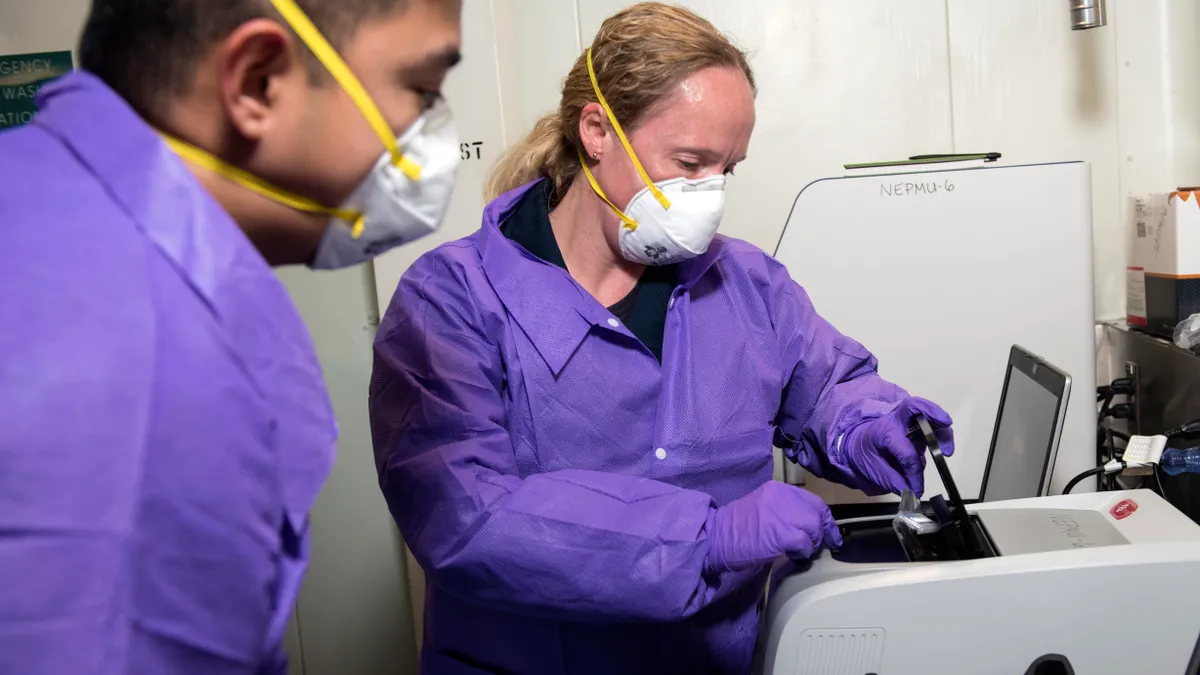Dive Brief:
-
Several large universities are planning to increase coronavirus testing in the spring after seeing outbreaks in the fall.
-
The University of Florida, the University of South Carolina and the University of North Carolina are among the institutions ramping up or mandating testing after having laxer policies this fall.
-
The announcements come as the U.S. clocks more than 100,000 new coronavirus cases each day and hospitals in some regions near capacity.
Dive Insight:
The University of North Carolina System recently announced that students will be required to get tested for the coronavirus before they return to campus in the spring. The policy marks a departure from the fall, when testing across the system was largely voluntary.
UNC-Chapel Hill was among several universities that sent students home after the fall term started because of outbreaks on campus. The university hopes to avoid the same fate this spring by requiring students living on campus and nearby to get tested twice weekly, the News & Observer reported.
This testing frequency is consistent with that highlighted in a study published in July in the Journal of the American Medical Association, which recommended students be tested every couple of days and follow social distancing measures to avoid campus outbreaks.
Mask-wearing, handwashing, de-densifying the campus and having the opportunities for safe human interaction will also be important, said A. David Paltiel, the study's lead author and a public health professor at Yale University.
The UNC System's policy has evolved with the Centers for Disease Control and Prevention's recommendations. The health agency suggested in its guidance to colleges this fall that screening students, faculty and staff for the virus upon reentry and regularly after that could help stem its spread. This was a reversal from its earlier recommendation of only testing people with symptoms or known exposure to the virus.
The University of Florida debuted similar plans for this spring, mandating testing every two weeks for students living in residence halls and taking in-person classes, according to a local media report. Students who refuse could face disciplinary action and won't be cleared to be on campus.
School officials announced the more aggressive testing policy amid their push to offer more face-to-face classes in the spring.
The University of South Carolina will require students and faculty members to test negative for the virus before returning to campus and take monthly tests throughout the term, The Post and the Courier reported.
However, this testing frequency might not be enough to identify and isolate asymptomatic spreaders before they infect others, Paltiel said.
The school only mandated entry testing in the fall for students living on campus. Since the beginning of August, it has reported almost 3,000 positive cases among students and employees.
So far, college campuses have been linked to more than 321,000 coronavirus cases and at least 80 deaths, according to a New York Times analysis. Although the tracker includes cases since the pandemic's start, most occurred after the fall term began.














